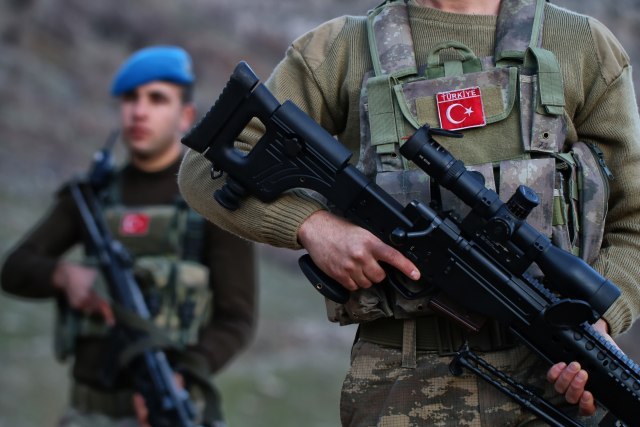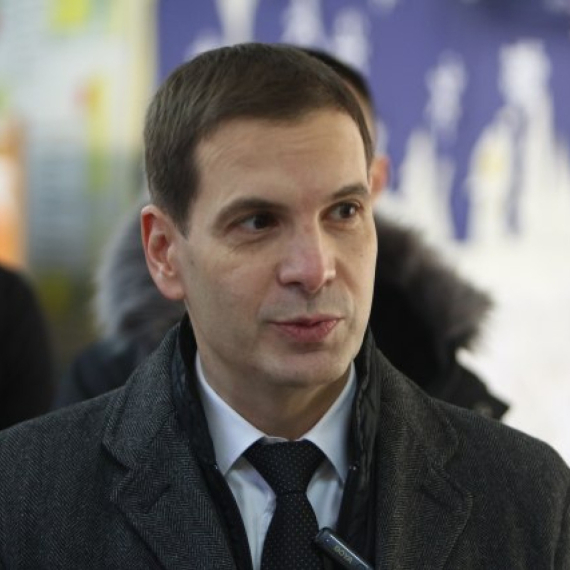Would Turkey intervene militarily in Bosnia-Herzegovina? "A main obstacle is Russia"
Whether Turkey will intervene in the event of an escalation of conflict in Bosnia and Herzegovina is the issue discussed by Middle East Monitor (MEMO) portal.
Tuesday, 01.02.2022.
23:15

Would Turkey intervene militarily in Bosnia-Herzegovina? "A main obstacle is Russia"
Unlike in the 1990s, Turkey is now a geopolitically stronger force, intervening in Syria and Libya without anyone's permission, so its potential engagement in Bosnia-Herzegovina is possible.Ankara already has military bases in Bosnia-Herzegovina and is in a stronger situation than it was in Syria or Libya.
The author of the text, Muhammad Hussein, wrote that Turkey, unlike in the 1990s, is much stronger and more capable of action without anyone's permission and support, but that if that happens, it is not clear whether it would exclusively support Bosniaks or would take up a role of a mediating force between the conflicting parties.
Hussein sees the basis for this opinion in the development of Turkish foreign policy in recent years and examples of conflicts in which Ankara intervened militarily.
"Many see Turkey as an increasingly interventionist force in its surrounding regions, but also as a mediating force. From its military interventions into Syria and Libya to its backing of Azerbaijan in the Nagorno-Karabakh conflict, Ankara has worked to establish its own assertive foreign policy using new military capabilities over the years. It has been far from a neutral player", Middle East Monitor portal claims.
"The question that both sides anticipate, though, is whether the interventionist policy would ever reach into Europe – its western front – in the near future", Hussein wonders.
Two Turkish leaders supported Bosnia-Herzegovina
That opportunity has seemed to present itself over the past few months in the ever-troubled Balkan region, where long-standing ethnic and nationalist tensions between Bosniaks and Serbs have again flared up in recent months.Recalling the activities of Republika Srpska, which caused the current crisis and obstruction of the state institutions, Hussein writes that tensions are far from over, and that if they escalate, as was the case in 1992, he legitimately raises the question of Turkey's role in that situation.
"If – or when – those tensions do escalate to the extent that they did in 1992, then there is genuine and legitimate curiosity as to what role Turkey would play in such a situation. The Turkey we see today is not the same Turkey the previous generation saw in the early to mid-90s, when the government was fiercely secular and the country was relatively geopolitically weaker than it is now", the author says.
"The enforced secular attitude meant that Turkey, and much of its political class, did not openly share that religious affinity with the Bosnian Muslims as much of the Turkish population did", he added.
The author recalls Turkey's position during the war in Bosnia-Herzegovina in the 1990s.
He states "that is not to say that there was no sympathy or support for Bosnia from Ankara".
There was certainly vocal support from both presidents during the course of the conflict – Turgut Ozal urged the US and the international community to intervene in Bosnia and helped lobby the United Nations to stop the Serbian aggression. He even threatened to halt the use of the Incirlik Airbase by the US-led Gulf War coalition, unless action was taken in Bosnia.
His successor, then-Prime Minister, Suleyman Demirel, also called for international intervention into the Balkans, believing "What was done to end the occupation of Kuwait should be done in Bosnia-Herzegovina today" and volunteering Turkish troops and aircraft for such action.
"Main obstacle is Russia"

That sheds light on the other reason why Turkey did not militarily intervene back then: it lacked the geopolitical clout and influence needed to take a calculated risk in transgressing the complacent policies set by the US, UN and NATO.
"In all those respects, Turkey is a drastically different entity today. Without stooping to the common branding of Erdogan's government as "Islamist" – a grossly inaccurate term – it is more overtly proud of its Islamic identity and history, and it has thrown off some of the shackles of strict and rigid secularism", the author says.
If a fresh conflict broke out in the Balkans, specifically between Bosnians and Serbians, then Turkey may well militarily intervene this time. Ankara already has military bases in Bosnia and is more established there than it ever was in Syria and Libya, so a reinforcement of that military presence and the establishment of supply lines is not difficult to imagine.
Whether that intervention would directly support the Bosniaks or simply maintain a mediatory role between the opposing sides is not yet certain.
"Either way, a main obstacle that may stand in Turkey's way is Russia, which has long stood by the Serbs and which Dodik claims would still protect their interests", the author claims.
"While the situation in Bosnia seems to be calming down and stabilizing with Turkish mediation, the dynamics suitable for another ethnic conflict in Bosnia are still present. If that takes place, then, this time round, Turkey may military intervene to prevent a second Bosnian genocide, and now it is wholly able to do so", the author concludes.





















































Komentari 9
Pogledaj komentare